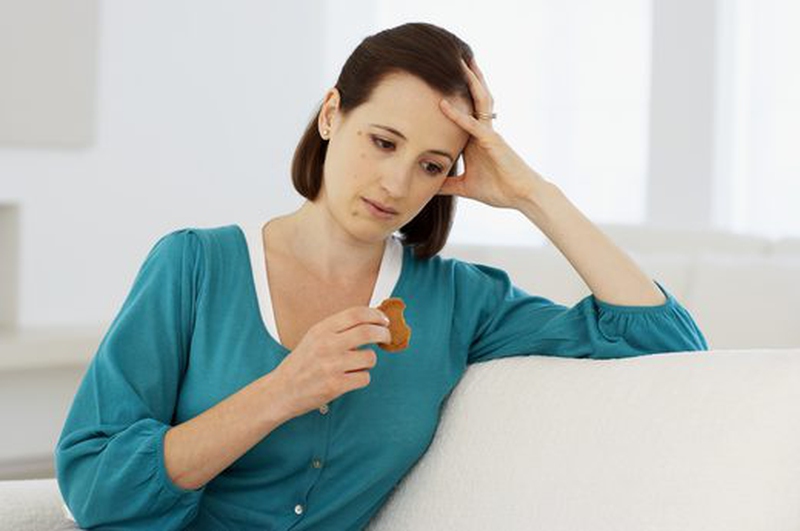Pregnant women are not only taking care of themselves, they’re taking care of the growing baby inside of them! So we often hear of the phrase “eating for two”. While every mom-to-be's needs are different, all need proper nutrition throughout their pregnancy for the health of mom and baby. However, it may be difficult for a woman to ensure she’s eating enough, especially if she had an erratic eating schedule before. The exact effects of poor eating habits vary, and here are some common ones you should be aware of.

What Happens If Not Eating During Pregnancy Properly?
Insufficient growth
When a woman is not eating properly during pregnancy, they’re not getting enough vitamins, minerals, and other nutrients needed. Because the baby relies on the mother for their own nutrients to help them grow, if the nutrition isn’t enough, the baby may not grow properly. Babies who haven’t grown enough in the womb are at risk for hypoxia after birth (lack of oxygen), low blood sugar and more.
Low birth weight
A major cause of low birth weight is improper nutrition in the mother as discussed above. Babies with a low birth weight are more at risk for respiratory distress syndrome, bleeding in the brain, and other heart problems. If a mom is not gaining enough weight as her pregnancy advances, it is extremely likely her baby will be smaller than average and at risk for serious conditions.
Neurological disorders
One of the more serious consequences of not eating during pregnancy adequately is neurological disorders because of certain missing nutrition. For example, iodine is crucial for brain development. Iron, found in meat, is used to make red blood cells that carry oxygen throughout the baby’s body, which help with brain growth. A folic acid deficiency can cause the neural tube to be unable to close, which results in deformation of the brain and spinal cord.
Death of baby
In extreme cases of malnutrition, the woman can experience a miscarriage or deliver a baby who may not live more than a few days. Death of the baby is extremely rare, except in the cases of women with eating disorders such as anorexia or bulimia. Women with these eating disorders are consistently not getting an adequate amount of calories, which does damage to both their own health and that of the baby.
Birth defects
Lack of nutrients like the ones mentioned above (iodine, iron, folic acid) can result in birth defects. One example is the neurological defects mentioned above. Another example is connected with calcium, found in dairy products and salmon, which helps with the formation of strong and healthy bones, just as it does in adults. If not enough, babies may be born with Osteomalacia and bone problems.
Poor health of mother
If the pregnant woman is not eating properly, the growing baby will "steal" the nutrients it needs from the mother. This can leave her with her own vitamin and mineral deficiencies, which can cause problems for her. For example, if the baby is taking iron from the mother, the mother can develop anemia, or a low red blood cell count. This causes a reduced amount of oxygen flowing to the organs and cause shortness of breath, dizziness, and lightheadedness.
Premature delivery
While any number of things can trigger a premature delivery (born before the 37th week of pregnancy), if a woman is not eating during pregnancy properly, they are putting themselves at a higher risk for this. Babies born early are usually also dealing with insufficient growth and low birth weight, which puts them in danger for developing a number of dangerous short and long-term conditions.
Inability to lactate
As a woman gains weight during pregnancy, her breasts also are supposed to gain weight as they get ready to provide milk to the newborn baby. If a mom-to-be is not eating well enough, her body will not store the fat needed to create breast milk, which provides vital nutrients and immune system boosters that a baby can’t get with formula.
How to Get Enough Nutrition If You Don't Feel Like Eating During Pregnancy
We know even though a pregnant woman is growing a whole other person inside of her, sometimes she just does not be hungry or feel like eating, just as any non-pregnant person might. In this condition, here are some ways to ensure getting needed nutrition and protect the baby.
Drink a lot of water. Staying hydrated is important, and some drinks like green tea can help with the nausea associated with the early stages of pregnancy, relieving your body's reaction of not eating during pregnancy.
Eat smaller portions. Don’t feel like you have to have huge meals just because you’re eating for two. Eating small meals throughout the day will help you get proper nutrition, too.
Don’t eat foods that make you nauseous. A woman’s appetite changes during pregnancy, and foods they normally liked may seem disgusting, or vice versa. Don’t force yourself to eat something that doesn’t seem appealing.
Take vitamin supplements. As discussed above, a deficiency in certain key vitamins will have a dangerous effect on the baby. Taking prenatal vitamins can help fill in the gaps and make sure you and the baby are getting enough nutrients.
Eat light foods. If a spaghetti dinner seems impossible, don’t worry. Things like grilled chicken, yogurt, and quinoa fill you up without making you feel like you’ve eaten a seven course meal. Focus on eating things high in protein and rich in vitamins.
Don’t stop eating. Even if you don’t have an appetite, don’t stop eating. Remember that will hurt both you and the baby in the long run. Talk to you doctor about ways to ensure you get proper nutrition.
View All Comments /Add Comment